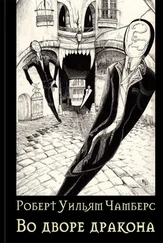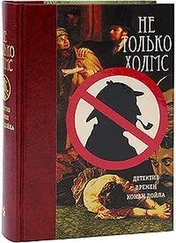Роберт Чамберс - Who Goes There!
Здесь есть возможность читать онлайн «Роберт Чамберс - Who Goes There!» весь текст электронной книги совершенно бесплатно (целиком полную версию без сокращений). В некоторых случаях можно слушать аудио, скачать через торрент в формате fb2 и присутствует краткое содержание. Год выпуска: 2014, Издательство: epubBooks Classics, Жанр: Историческая проза, на английском языке. Описание произведения, (предисловие) а так же отзывы посетителей доступны на портале библиотеки ЛибКат.
- Название:Who Goes There!
- Автор:
- Издательство:epubBooks Classics
- Жанр:
- Год:2014
- ISBN:нет данных
- Рейтинг книги:4 / 5. Голосов: 1
-
Избранное:Добавить в избранное
- Отзывы:
-
Ваша оценка:
- 80
- 1
- 2
- 3
- 4
- 5
Who Goes There!: краткое содержание, описание и аннотация
Предлагаем к чтению аннотацию, описание, краткое содержание или предисловие (зависит от того, что написал сам автор книги «Who Goes There!»). Если вы не нашли необходимую информацию о книге — напишите в комментариях, мы постараемся отыскать её.
Who Goes There! — читать онлайн бесплатно полную книгу (весь текст) целиком
Ниже представлен текст книги, разбитый по страницам. Система сохранения места последней прочитанной страницы, позволяет с удобством читать онлайн бесплатно книгу «Who Goes There!», без необходимости каждый раз заново искать на чём Вы остановились. Поставьте закладку, и сможете в любой момент перейти на страницу, на которой закончили чтение.
Интервал:
Закладка:
"Karen?"
She made the effort, failed, tried again:
"Yes," she managed to say.
"Don't cry any more."
"No."
"Because I don't mean to make you unhappy."
"No–o―"
"But I must have those papers—mustn't I?"
"Y–yes."
"But you are not going to give them to me, are you?"
"No–o."
"And I am not going to—to tear you to pieces, am I?"
"No–o–o―"
"And yet I must have them, mustn't I?"
"Yes."
"You know I am going to get them, don't you?"
"Yes."
"How do you think I am going to do it?"
"I d–don't know."
"I think I know one way."
She remained silent.
"It is quite a wonderful way … if it could occur—happen, come about."
She said nothing.
"I don't know—I don't know—I won't think about it any more … for a while…. It's too important to think about … in that way … if it is going to be important at all…. I don't know exactly what I'm saying, Karen. I seem to be thinking out loud…. The idea came … and then remained…. You won't cry any more, will you?"
"No."
"I frightened you, didn't I?"
"No…. Yes…. Not exactly."
"You know," he said, "I don't understand you."
"Don't you?"
"Not clearly…. Do you care a little for me, still?"
"I don't know—how I feel."
"Could you care for me—be friends again—as naturally and as honestly as you were once?"
"I—trusted you. Friendship is trust."
"I know. I have destroyed your confidence."
"Yes—my confidence in friendship."
"That is a terrible thing to do," he said miserably.
"Yes. Friendship ends when distrust begins. I do distrust you and I don't understand why—why distrusting you makes me care for you—even more."
"Karen!"
"I do care—more than I did. Can you explain it?"
He was silent, surprised and touched.
"I can't explain it to myself," she said. "I have been trying to and I can't. I should detest you, but I don't. If there is any contempt it is for myself—because I can not feel it for you, perhaps. I think it's that. I don't know. The years we have lived together in these two days must account for my liking you…. Not altogether, because it began in the beginning when you came to Hyacinth Villa…. And it's been so all the time."
"Not all the time. Not in our stateroom."
"Yes—even there."
"When I―"
"Yes! Yes! Isn't it degrading? Isn't it unaccountable—terrible! I'm frightened I tell you. I am afraid that whatever you do—will not—change me."
There was no emotion in her young voice, only an accentless admission of facts with a candour and directness that silenced him.
After a moment she went on, without emphasis, and thoughtfully, as though in self–communion to make things clearer to herself:
"I'm really well born. You might be pardoned for not thinking so―"
"Your father is of that caste."
"General von Reiter is not my father."
"What!" he exclaimed, astounded.
She turned her face from his shoulder and looked up at him.
"He spoke to you of me as his daughter. You spoke to me of him in that relation, too. I did not enlighten you because it did not seem to matter. But it is not true."
"Is he—your guardian?"
"No; I need none. My father was a German officer—of that caste. My mother was Danish…. Something happened—I do not know what. I was very little. And my mother would never speak of it. She was very beautiful. I remember her quite well. We lived in Copenhagen.
"Whatever happened occurred before I was born. I know that. Mother told me. My father dropped both title and name and left the army and went with my mother to Copenhagen. He took the name of his mother who was English—Girard. I never was even told what our name had been. Neither father nor mother would ever speak of it."
She rested there silent, absent–eyed, gazing into space as though recalling years that had not been unpleasant. Then, serenely meeting his gaze, she smiled up at him.
"You know," she said, "my life has been a happy one. My father was a man of means. We lived very happily in Denmark. I've always thought of myself as Danish.
"My childhood was really wonderful. I had a passion for study, for learning; and I learn very easily—almost without effort. And you know, perhaps, how thorough the Danish schools are, how much they demand of a child, physically as well as mentally.
"And I did everything, Kervyn; learned the accomplishments of a young Danish girl—and was flattered I am afraid, and perhaps spoiled.
"And always I desired to go on the stage—always—from the very beginning—from the time I was first taken to the theatre.
"It was quite hopeless. I did act for charity, and at school; and afterward took lessons. But as long as my father and mother lived that career was not possible…. Afterward I decided for myself. And first I went to Germany and they gave me a small part in a company that was going to Posen. And there General von Reiter, who had been my father's friend and brother–officer, met me.
"He was very kind. He wished to adopt me and give me his name. He was very insistent, too—a man—Kervyn, not unlike you—in some respects. But I never dreamed of permitting him to sway me—as you do.
"He knew my desire for a stage career; he has for three years attempted to destroy in me that desire. When I had no engagement, or was studying, he insisted that I stay with his brother and his brother's wife, with whom he lived. He spoke freely of his desire and intention of legally adopting me, called me his daughter when he spoke to others of me—and always I felt the constant, iron pressure of his will—always—not harshly, but with the kindly patience of resolution.
"Then I decided to go to England, study, and if possible gain some experience on the London stage.
"And then"—she bit her lip—"I think I may say it—to you —not saying it lightly, Kervyn—then, on the eve of my departure, he asked me to marry him.
"And because he would not accept my answer he exacted of me a promise that in November I would return to Berlin, give him my final answer, and choose then between marrying him or a return to the profession I care for most.
"That is my history, Kervyn. No man has ever figured in it; none except General Baron von Reiter has ever even invaded it … until you have done so … and have made your wishes mine—I don't know how—and your will my inclination—and me more than the friend I was.
"One thing only you could not do—and in my heart I know you do not wish it of me—and that is, make me break my word—make me forget a promise.
"Now I have told you all," she said with a little sigh, and lay there looking at him.
"Not all, Karen."
"Yes, I think so."
"No. You have not told me what answer you mean to make."
Her eyes opened at that. "I am not in love. What answer should I make?"
"You return to your career?"
"Of course, once my promise is kept."
"What promise?"
"To see him and tell him what I have decided."
"Do you think he might persuade you?"
"No!"
"Are you sure?"
"Perfectly."
He said, looking at her with a hint of a smile in his eyes: "Do you think I might ever persuade you to give up your career?"
She smiled frankly: "I don't think so."
"Not if I asked?"
"You wouldn't do such a thing."
"I might if I fell in love with you."
She lay perfectly still, quite tranquil, looking up at him. Suddenly her expression changed.
"Is it likely?" she said, the tint of excitement in her cheeks.
"Do you think so?"
"I don't know. Is it?"
"It's perfectly possible I imagine."
"That you could fall in love with me?"
Читать дальшеИнтервал:
Закладка:
Похожие книги на «Who Goes There!»
Представляем Вашему вниманию похожие книги на «Who Goes There!» списком для выбора. Мы отобрали схожую по названию и смыслу литературу в надежде предоставить читателям больше вариантов отыскать новые, интересные, ещё непрочитанные произведения.
Обсуждение, отзывы о книге «Who Goes There!» и просто собственные мнения читателей. Оставьте ваши комментарии, напишите, что Вы думаете о произведении, его смысле или главных героях. Укажите что конкретно понравилось, а что нет, и почему Вы так считаете.












